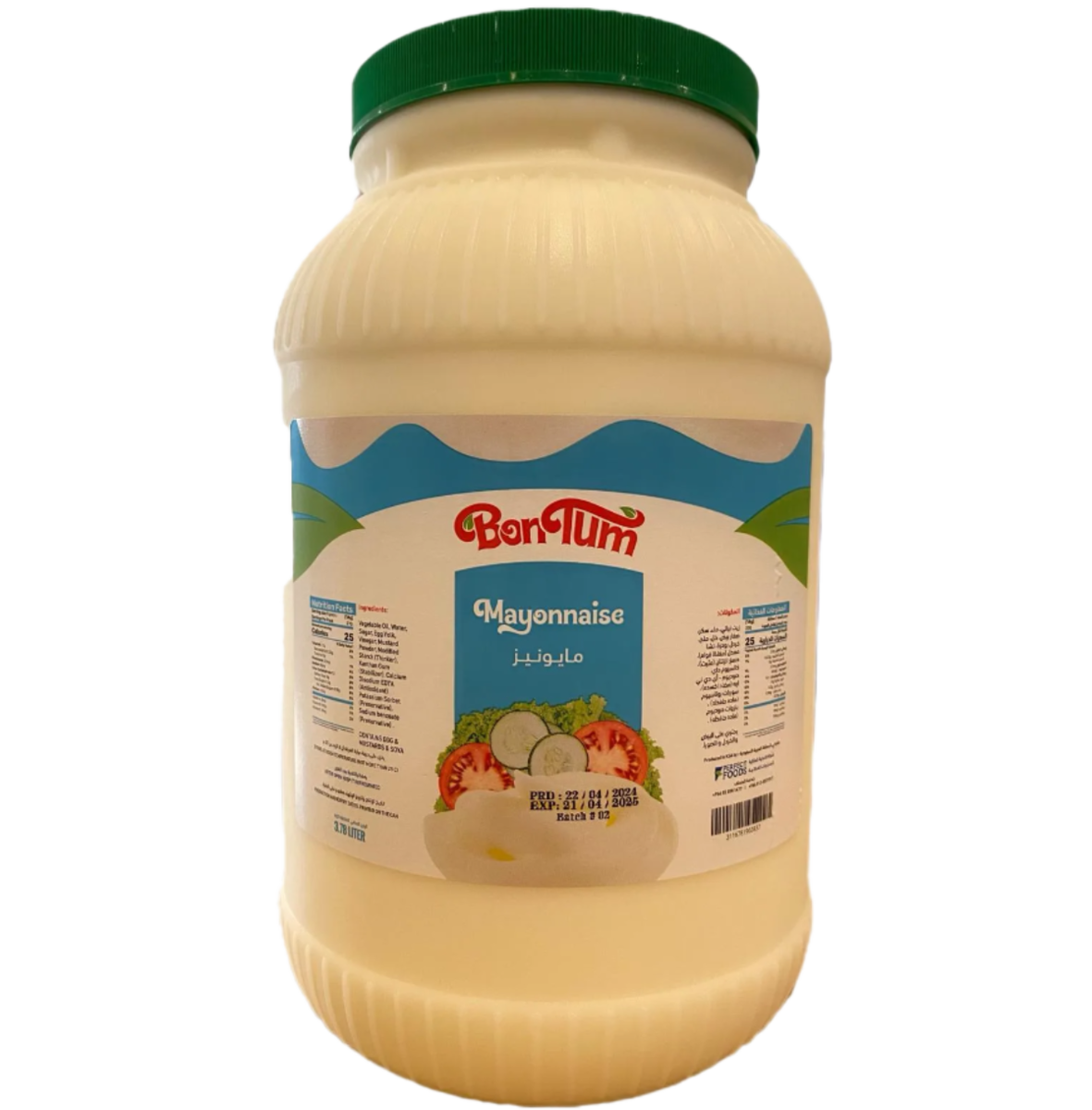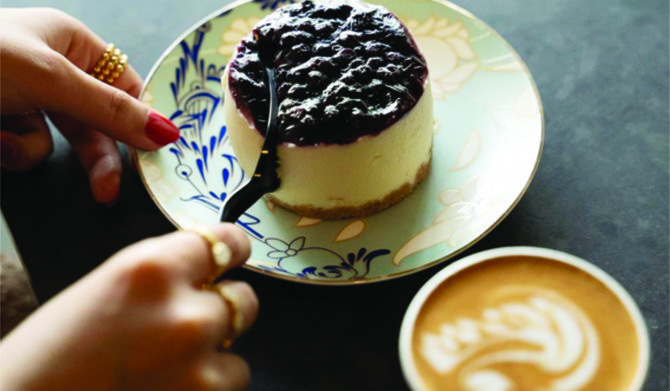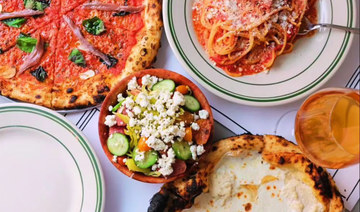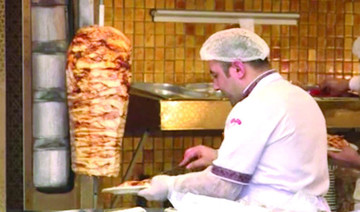PARIS: Marriage may test one’s sanity, but living into old age with a partner also lowers the risk of dementia, researchers said Wednesday.
In a study covering more than 800,000 people, they found that walking through life alone increased the chances of Alzheimer’s and other forms of dementia by 40 percent.
Being widowed after extended co-habitation also took a toll, boosting the odds of mental slippage by about 20 percent.
“There were fairly well established health benefits of marriage, so we did expect there to be a higher risk in unmarried people,” said lead author Andrew Sommerlad, a psychiatrist and research fellow at University College London.
“But we were surprised by the strength of our findings,” he told AFP.
Couples living together without having formally tied the knot were still considered as being married for the purposes of the study, he added.
Interestingly, elderly people who had divorced were no more likely to suffer from dementia that married couples.
Across the different categories, there was also no detectable difference between men and women in the rates of mental decline.
To explore the links between marriage and dementia, Sommerlad and colleagues reviewed data from 15 earlier studies covering 812,000 people from a dozen countries.
The vast majority were from Sweden, but there were enough from other nations — including France, Germany, China, Japan, the United States and Brazil — to confirm surprisingly little variation across cultures.
The finding were detailed in the Journal of Neurology, Neurosurgery & Psychiatry.
But even if the results were robust, the question remained: why?
Because the study was observational rather than based on a controlled experiment — something scientists can do with rats or mice but not humans — no clear conclusions could be drawn as to cause and effect.
Still, the evidence suggests at least three mutually compatible explanations.
“We don’t think it is marriage itself which reduces the risk, but rather the lifestyle factors that accompany living together with a partner,” Sommerlad explained.
“These include a more healthy lifestyle — taking better care of physical health, diet, exercise — but also the social stimulation that comes with having a partner to talk to.”
Earlier research has shown that people who live alone die younger, succumb more quickly when they get cancer, and are generally in poorer health.
But the “dementia gap” between married folk and singletons is even wider than the gap in mortality, suggesting that living with someone has direct benefits for the brain too.
A second factor may be the extreme stress that comes with losing a life-long partner, which measurably impacts neurons in the hippocampus, the main locus of memory, learning and emotion.
“This theory could explain the increased dementia risk for widowed, but not divorced, people,” the study said.
Finally, there is the possibility that some people who have not married — especially in societies where that is the overwhelming norm — may have had cognitive challenges to begin with.
A marked difference in rates of dementia among loners of the same age but different generations bears this out.
“Single people born during the first quarter of the 20th century had a 40 percent higher risk, whereas people of equivalent age who were born more recently have only a 24 percent higher risk,” Sommerlad said.
This could be due to a diminishing difference in the lifestyles between married and unmarried people, he added.
Researchers must focus on how to translate these findings into strategies for preventing dementia, commented Christopher Chen of National University Singapore and Vincent Mok from the Chinese University of Hong Kong.
“As sexual activity has been found to associate with better cognitive function — the frequency of which may be reduced in single or widowed individuals — this could be another plausible mechanism,” they wrote in the same journal.
Marriage can make you crazy, but it deters dementia too: study
Marriage can make you crazy, but it deters dementia too: study

Where We Are Going Today: ‘Crustacean’ - a Modern Asian cuisine at Jeddah’s Yacht Club

- The grilled tiger prawns served with Crustacean’s famous garlic noodles showcase the seafood’s quality and the noodles’ perfect texture and flavor
Crustacean, a gem of Modern Asian cuisine with a blend of Asian and European flavors from Beverly Hills, California, has recently graced the shores of Jeddah, opening its first international branch at Jeddah’s Yacht Club by the serene waters of the Red Sea.
The dim lighting sets an ideal ambiance for special occasions and a glass-topped koi pond offers a calming sight for guests who can watch the kohaku koi fish as they dine.
On soft opening day, the mocktail menu was a highlight, featuring the “Desert Rose” — a concoction exclusive to the Saudi Arabia branch. Inspired by popular regional flavors, this exotic blend includes pineapple juice, rose water, homemade lychee juice, caramelized pear tea syrup, and mandarin juice topped with pomegranate seeds.
The An Sum family tree platter, representing the five daughters of the restaurant’s founder, Helene An, includes selections like marinated raw tuna, seafood dumplings, and crunchy fried chicken, each paired with a special sauce.
Salad lovers would appreciate the little gem salad, a refreshing blend of eight-herb green goddess dressing, crispy taro, hydro watercress, cabbage, and roma tomato, showcasing the restaurant’s commitment to fresh and vibrant ingredients.
Tuna cigars, a cold appetizer served in a wooden cigar box with dramatic presentation and a tantalizing smoky aroma upon opening, were particularly exciting. The cigars, with their crispy crust filled with feuillet de brick, avocado silk, onions, and tobiko caviar, are a delightful starter complemented by lime slices for an added zest.
A standout feature of Crustacean is its legendary secret kitchen, accessible only to certain chefs who can preserve the authenticity of family recipes. Dishes prepared here are delivered through a secret window, ensuring that the culinary secrets remain within the family. From this kitchen come the main courses that make up Crustacean’s culinary mastery for over 30 years.
The signature Dungeness crab, prepared with impeccable technique, reflects the seafood tradition of Jeddah by blending local and sourced ingredients, presenting a dish that's both indulgent and beautifully representative of the seaside locale.
The grilled tiger prawns served with Crustacean’s famous garlic noodles showcase the seafood’s quality and the noodles’ perfect texture and flavor.
The menu also caters to diverse palates with options like the salt and pepper calamari and the hearts of palm crispy calamari, which are a delight for both traditional and vegan diners, thanks to the thoughtful inclusion of spicy vegan aioli.
For updates and more information, check @crustacean_sa.
Botulism outbreak traced to mayonnaise at Riyadh restaurant

- Saudi food authority discovers clostridium botulinum in Bon Tum brand product; ministry implements strict measures
RIYADH: The Ministry of Municipal, Rural Affairs and Housing announced on Saturday that a Saudi Food and Drug Authority laboratory test had found clostridium botulinum in a Bon Tum mayonnaise brand used by the Hamburgini food chain.
Since the bacterium was discovered in a Bon Tum factory, the ministry has collaborated with the SFDA and other authorities to enforce additional measures beyond those previously implemented.
These measures include suspending the distribution of the mayonnaise product and withdrawing it from markets and food facilities across all cities in the Kingdom. They also include halting operations at the factory in preparation for implementing statutory procedures.

Any remaining quantities of the product at the factory across all batches and expiration dates have also been withdrawn, and all factory clients, including restaurants and food establishments, have been notified to dispose of any quantities they own.
The ministry has also issued instructions to continue the monitoring, investigation, and inspection campaigns across all cities of the Kingdom by municipalities and relevant authorities, ensuring the safety of food products provided to consumers.
Authorities have emphasized the importance of obtaining information from official sources and not being swayed by rumors and misinformation.
HIGHLIGHTS
• The botulism outbreak was first brought to light on April 27 when Riyadh municipality received a report of food poisoning cases linked to the Hamburgini restaurant chain.
• New measures undertaken by authorities include suspending the distribution of the Bon Tum mayonnaise product and withdrawal from markets and food facilities in the Kingdom.
• Any remaining quantities of the product at the factory across all batches and expiration dates have also been withdrawn.
• Authorities have emphasized the importance of obtaining information from official sources and not being swayed by rumors and misinformation.
Dr. Nezar Bahabri, infectious diseases consultant at the International Medical Center in Jeddah and the director of the Saudi Society of Medical Microbiology and Infectious Diseases in Jeddah, told Arab News that contracting illness through clostridium botulinum is very rare as it thrives in non-oxygenated (anaerobic) environments and is typically found in improperly preserved foods.

The bacterium produces a toxin that attacks the body’s nervous system, resulting in muscle weakness, blurred vision, difficulty speaking and swallowing, and eventually paralysis. Typically, the likelihood of exposure to this bacterium is low with modern food safety practices in place.
Bahabri said: “When this bacterium is ingested, and the toxin is released, symptoms will manifest within a few hours up to around two days.”
Mohammed Al-Awamy, a gastroenterologist, told Arab News: “Symptoms start in the face and then descend to involve the limbs and trunk. Respiratory failure ensues due to involvement of the respiratory system leading to cardiopulmonary collapse.”
The best measure to be taken is eating fresh and cooked food as the heat of cooking will kill the bacteria, and the toxin will become ineffective.
Dr. Nezar Bahabri, Infectious diseases consultant, International Medical Center
The symptoms of botulism, the illness caused by clostridium botulinum, are quite distinct and can be quickly recognized and treated with an antitoxin.
Bahabri explained: “If it was an injury, we will clean the wound and the infected tissue. If it is due to ingestion, we administer antitoxin, IV (intravenous) fluid, and painkillers as needed.”
Botulism is a life-threatening neurological disorder resulting in paralysis and death if not treated promptly.
Bahabri said that a patient must be admitted to hospital for observation, adding: “If the patient develops symptoms or weakness in the respiratory or lung muscles, we will transfer them to the ICU (intensive care unit) to put them in mechanical ventilation until the antitoxin works.”
Bahabri said that with proper treatment, the chance of a patient dying was less than 7 percent, adding: “The best measure to be taken is eating fresh and cooked food as the heat of cooking will kill the bacteria, and the toxin will become ineffective.”
The occurrence of clostridium botulinum infections is extremely uncommon due to the precautions taken in food preparation and handling. Therefore, it is important to stay informed about food safety guidelines and to be cautious when consuming canned or preserved foods.
The botulism outbreak was first brought to light on April 27 when Riyadh Municipality received a report of food poisoning cases linked to the Hamburgini restaurant chain.
The Ministry of Health said 75 people were affected in the outbreak, which included one death, and that no new cases had been recorded.
Dr. Mohammed Al-Abd Al-Aly, the Kingdom’s Health Ministry spokesperson, said on social media platform X: “The total number of recorded cases stands at 75, including 69 Saudi nationals and six non-Saudis.”
He also confirmed at the time that the only source of the contaminated food was from the local Hamburgini fast-food restaurant chain.
In response, health oversight teams promptly initiated an investigation and began monitoring the situation. By 10 p.m. on Thursday, all locations, branches, and the main catering factory of the restaurant chain in Riyadh were ordered to close.
Delivery services through the facility or via applications were suspended, and coordination efforts were initiated with key bodies, including the Ministry of Health, the Food and Drug Authority, and the Public Health Authority.
People reacted on social media platforms after the announcement of the lab results.
McDonald’s Saudi Arabia wrote on X: “We, at McDonald’s Saudi Arabia, assure everyone that we do not use, nor have we ever used, Bon Tum mayonnaise … No case of poisoning was detected in any of our restaurants, thank God, and none of our branches were closed during this entire period.
“We wish and pray for all those injured to recover quickly. May God protect our country and our honorable people from all harm.”
@MohammedLegandry wrote on X: “This mayonnaise is officially the cause of the poisoning cases that occurred. I think it is positive news for the sector as long as the problem is identified, and it limits the messages of weak-minded people, the writing and spreading of circulating rumors, frightening people, and causing panic.”
“We are reassured that government agencies are keen on the public health of individuals,” posted @Nnalshriii.
@Abusayel54 commented on X: “I hope that the factory will be defamed, closed, and fined.”
@iiuxr8 said: “Is the mayonnaise the main cause of poisoning, or poor storage? (by Hamburgini).”
Another user @Hamoooo11 wrote: “Food quality and safety is the role of the restaurant itself to ensure its products, even if they are sourced externally. Otherwise, what is the point of a specialist and quality controller in their facilities?”
Where We Are Going Today: ‘La Petite Maison’ in Riyadh

- Our two recommended dishes for the main course would be the homemade spinach ravioli and the herb-marinated chicken
La Petite Maison’s new business lunch menu features simple yet classic dishes bursting with intricate French Mediterranean flavors.
When Riyadh’s LPM opened it became the organization’s sixth location, indicative of its popularity.
The new lunch menu is available from Sunday to Thursday from 12:30 p.m. until 3:30 p.m. and has two versions: the small menu, which costs SR180 ($48) per person and includes a starter and one course; and the larger menu, which costs SR230 and includes a dessert as well.
Similar to other set menus, the lunch begins with a salad and then moves on to starters.
The selection of starters on the set menu include tartare d’espadon (swordfish tartare with sesame citrus dressing); carpaccio de boeuf (cured sirloin with pickle dressing); beignets de brocolis (tender stem broccoli tempura); and the rules de legumes grilles (grilled vegetable rolls with buffalo mozzarella).
I highly recommend the tartare d'espadon. The fish is freshly diced into cubes with a light and natural flavor, and the dressing is refreshing and does not overpower the raw fish. The beignets de brocolis is another great option.
Four options on the main course include ravioli aux epinards au pistou (a homemade spinach ravioli with pistou); cote de veau grillee (grilled veal chop); poulet marine aux herbes et epinards sautes (herb-marinated chicken with sauteed spinach); and the cabillaud a la provencale (roasted cod with provencal sauce).
Our two recommended dishes for the main course would be the homemade spinach ravioli and the herb-marinated chicken.
When opting for the set menu, visitors should note that the dessert option is limited to the chocolate bar with coffee and hazelnut. If chocolate is not preferred, visitors can always opt to order from the a la carte menu. I recommend trying the gateau au fromage frais (cheesecake).
The freshness and quality of the ingredients are apparent as each dish on the set menu is produced specifically for the current season.
LPM is usually quite busy in Riyadh so it is best to make a reservation, especially if you are attending with a large party.
What sets it apart from other fine dining restaurants is that it does not have silver service but rather encourages a family dining setting, with guests serving and sharing the food.
If you are looking for a casual business lunch to break the corporate ice, LPM would be ideal.
LPM has locations all over the world, including in London, Dubai, Miami, Abu Dhabi, Doha, and Hong Kong.
Turkiye applies to have doner kebab protected under EU law

- Meat-based dish could join the likes of Champagne, Serrano ham if approved
- Bloc can apply protections based on heritage value, ingredients, method of production
LONDON: Turkiye has applied to have the doner kebab protected under EU law, Metro newspaper reported.
The bloc famously enforces strict regulations on certain foods — including French Champagne, Spanish Serrano ham and Neapolitan pizza — in order to safeguard their production and preserve regional culinary heritage.
Issues including the sourcing of ingredients, method and place of production all go into determining what can and cannot be labeled as a protected food, with harsh penalties for those found to be profiting from items deemed not to match the legal criteria.
The doner kebab will undergo a three-month evaluation process to determine whether it too will join the exclusive list of dishes and foodstuffs.
During the process, other countries will be permitted to challenge the application over similarities to their own products, as happened in 2021 when Italy voiced opposition to the Croatian sparkling wine Prosek receiving protected status due to its apparent similarities to Prosecco.
Traditionally formed of meat marinated in salt, pepper, a number of other herbs and spices as well as tomato puree and yoghurt, the doner kebab can contain beef, lamb or chicken.
It is placed on a skewer and rotated against a fire, with thin strips sliced off and served in a flatbread or pitta with lettuce, tomato and onion.
Beef and lamb slices should be 3-5 mm in thickness, while chicken should be thinner at 1-3 mm per slice.
The dish is believed to be worth around $3.6 million annually to Europe’s economy, according to the Association of Turkish Doner Producers.
Where We Are Going Today: Sawada cafe in Riyadh

Sawada cafe is located in a plaza overlooking Olaya Street, Riyadh, making it an ideal getaway from the bustle of the city.
The coffee shop offers specialty coffees and desserts, but what sets it apart is its ambiance, with a bohemian-influenced interior design style, soft lighting, and decorative wheat plants lining the walls of the seating area.
Eclectic paintings from Saudi artists are displayed on the walls, providing an artistic touch.

Sawada is ideal for those looking for a quiet and calm spot to relax with friends. It is also good for studying or working — if you can ignore the light, ambient music playing in the background.
Various seating areas are available, including booths bordering the walls and benches overlooking the barista area. A designated smoking area with seating is well separated from nonsmokers sitting indoors.
Customers can also grab their coffees and head to the outdoor seating area or take a walk on the path outside the cafe.
With so many coffee shops and cafes opening in Riyadh, it can be difficult finding authenticity when it comes to coffee beans. But Sawada’s quality is revealed in its V60 drink, a pour-over coffee that highlights the subtle and smooth flavors of the beans.
The menu is standard, with many local favorites, including Spanish latte, flat white, cortado, cappuccino, and tea. Iced tea, an ideal thirst quencher in Riyadh’s summer heat, is also available.
Sawada offers a variety of desserts that can be paired with coffee, including pecan tart, classic date cake, croissants, sweet bars made out of dates, and toffee crumble.
Our recommended options are the chocolate cookies, the classic cheesecake, and the San Sebastian cake. A Snickers and Ferrero Rocher cake also looked appetizing.
We tried the matcha, but the large amount of milk overpowered the flavors of the tea. We recommend trying the signature or Spanish latte instead.
For updates and more information, check Instagram @sawada.ksa.

















